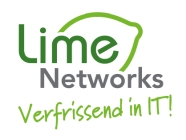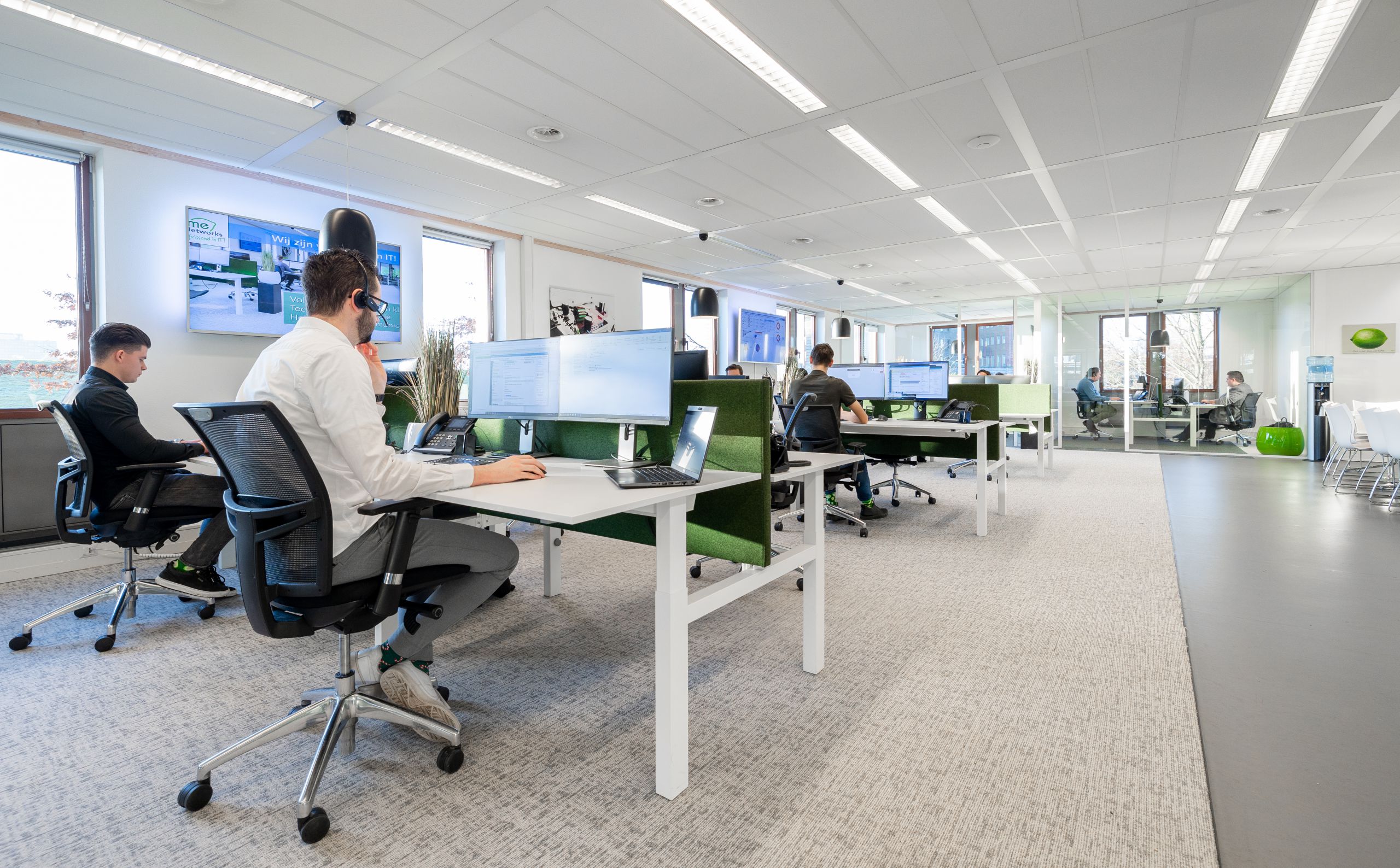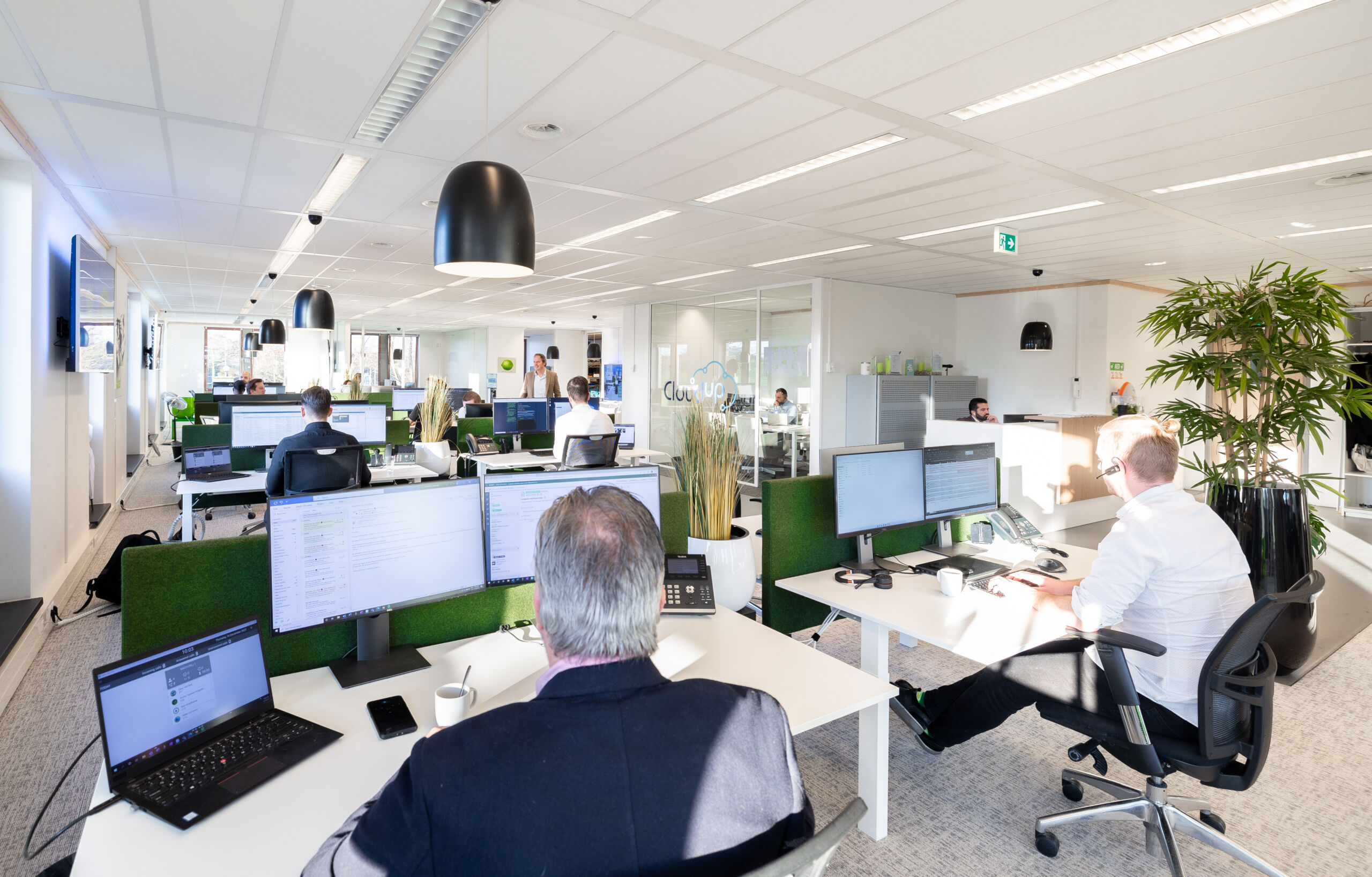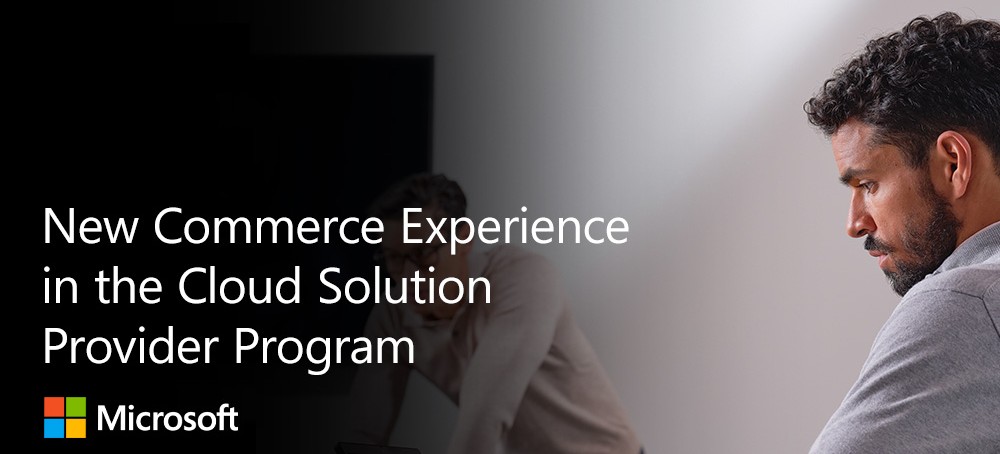.
Part of
digital transformation
From servers to Azure
The digital transformation is about change and flexibility. IT plays an important role in this. We make IT simple and make it available to your company in bite-sized chunks.
Part of the digital transformation
Servers and Azure
Technology is becoming increasingly important in our lives. The digital transformation involved is about strategy and a new way of thinking. Think of invoices by mail instead of post, Word documents instead of handwritten texts and digital notes instead of Post-its. At ITarea, this means making a workplace available at any location, so that everything is simply available anywhere, anytime. An essential part of this is servers. These need to be managed in a secure and proper way. It doesn't matter to us whether your servers are in the office, in a data center or (partially) in the cloud. We make sure you can keep doing your job and take care of your business with good server services, including Azure, Microsoft's cloud solution.
When you don't want any more security problems or drama (for example, slow servers or other server problems that impede the company's progress, quality and productivity), it's time to join the digital transformation. On the technical side, there are a number of pitfalls, which we would like to point out and prevent for you.
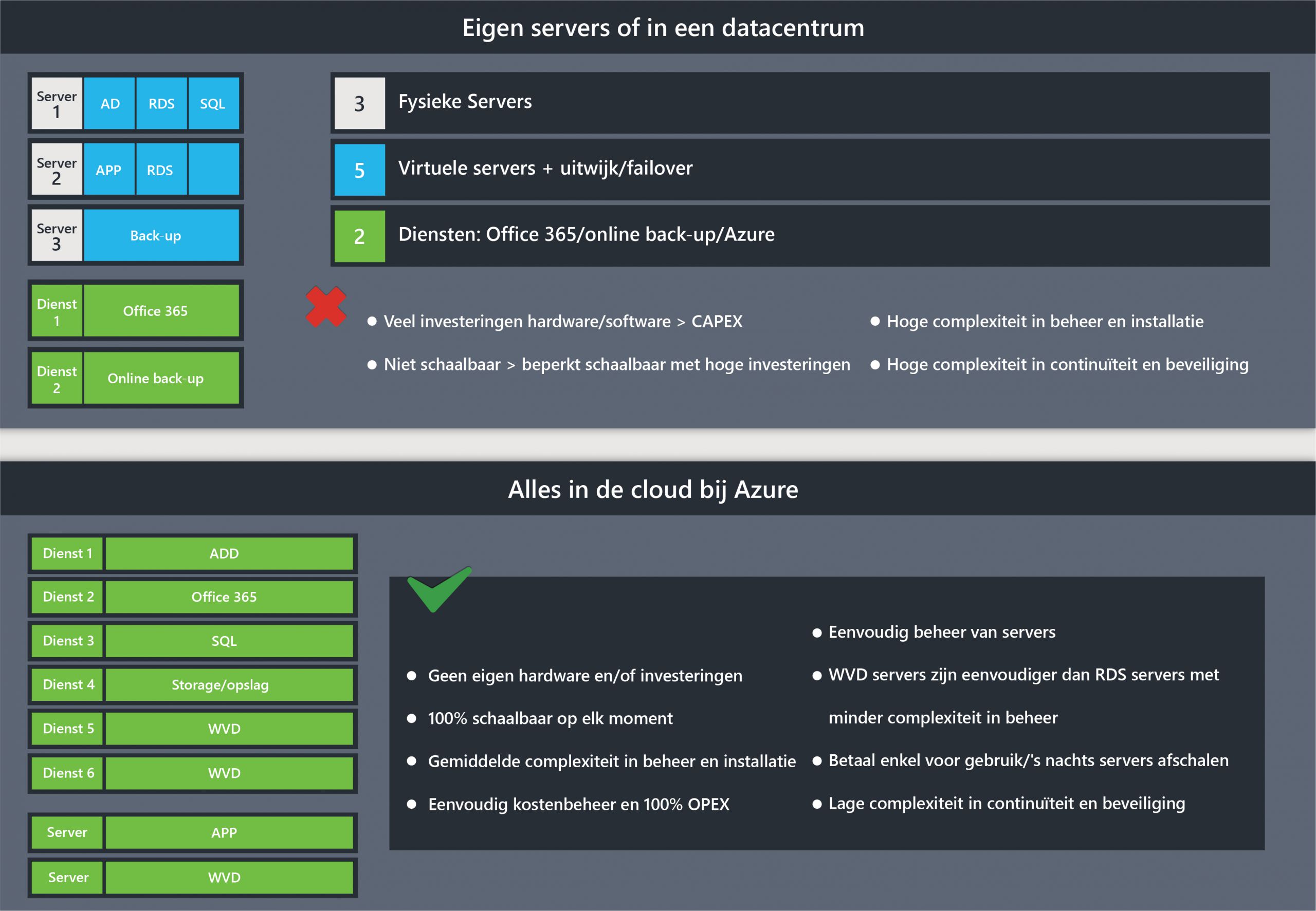
With 'secure by design' we ensure
safe products with continuity

What is Azure and why is Azure useful?
Azure is the umbrella name for Microsoft's cloud platform. It includes various locations around the world that are gigantic data centres, which you can then rent a piece of. You can do this as a company, but also as a private individual. What is the advantage? Your security is much better organised than with the average hosting party, because Microsoft spends billions on security.

The differences between old and new
| Old way | New way | Why better? | Need expertise? | |
|---|---|---|---|---|
| Way of solving problems | Reactive management
Doing a lot afterwards. You repair when something is broken There is a fault, and you fix it as soon as possible |
Proactive management
You get an alarm beforehand. "Soon a disk will be full". You fix it before anyone notices. By measuring in detail you can see problems in advance.If a service on the server service crashes, you can have itrestarted automatically, but you want to know this so you can look at the cause and act on it. So automation and rootcause analysis ensure the prevention of failures that have major consequences. |
No more downtime, you can keep working Prevention of major malfunctions problems Recognize before they strike. |
Extremely much. You really have to have studied for it. There are certification courses. These are complex 3-4 year courses that are part of an MBO/HBO diploma in IT. |
| Scalability | Licences per unit of account
Licences per unit of account, server, person or a combination of these. From purchase to lease, the hardware remains the most difficult to scale. Certainly in smaller set-ups in small and medium-sized businesses. |
Small cubes performance. You don't just rent a server, but a piece of a server, including licences. You can on a very short term basis (per hour, or minute even) and thus pay 100% for use. | Scalable, more efficient in cost and performance, cheaper, more flexible. Much simpler set-up and with volatile environment the costs are still predictable. | Knowledge of Servers, scaling, performance and especially Microsoft Azure with its many services *hundreds* of them But also of costs and cost control. And: ITers who at the forefront of in technology. |
| Backups | Arranging backups yourself
Manual setting control |
Automatic backups
Done in a safe way without looking back A shift from services to requirements in functionality (such as retention and data security) |
More efficient, safer, continuity | ITers who know how to protect your data safely, securely and with the right retention. |
*In addition to increased security, this also increases convenience, as you no longer need to log in everywhere.
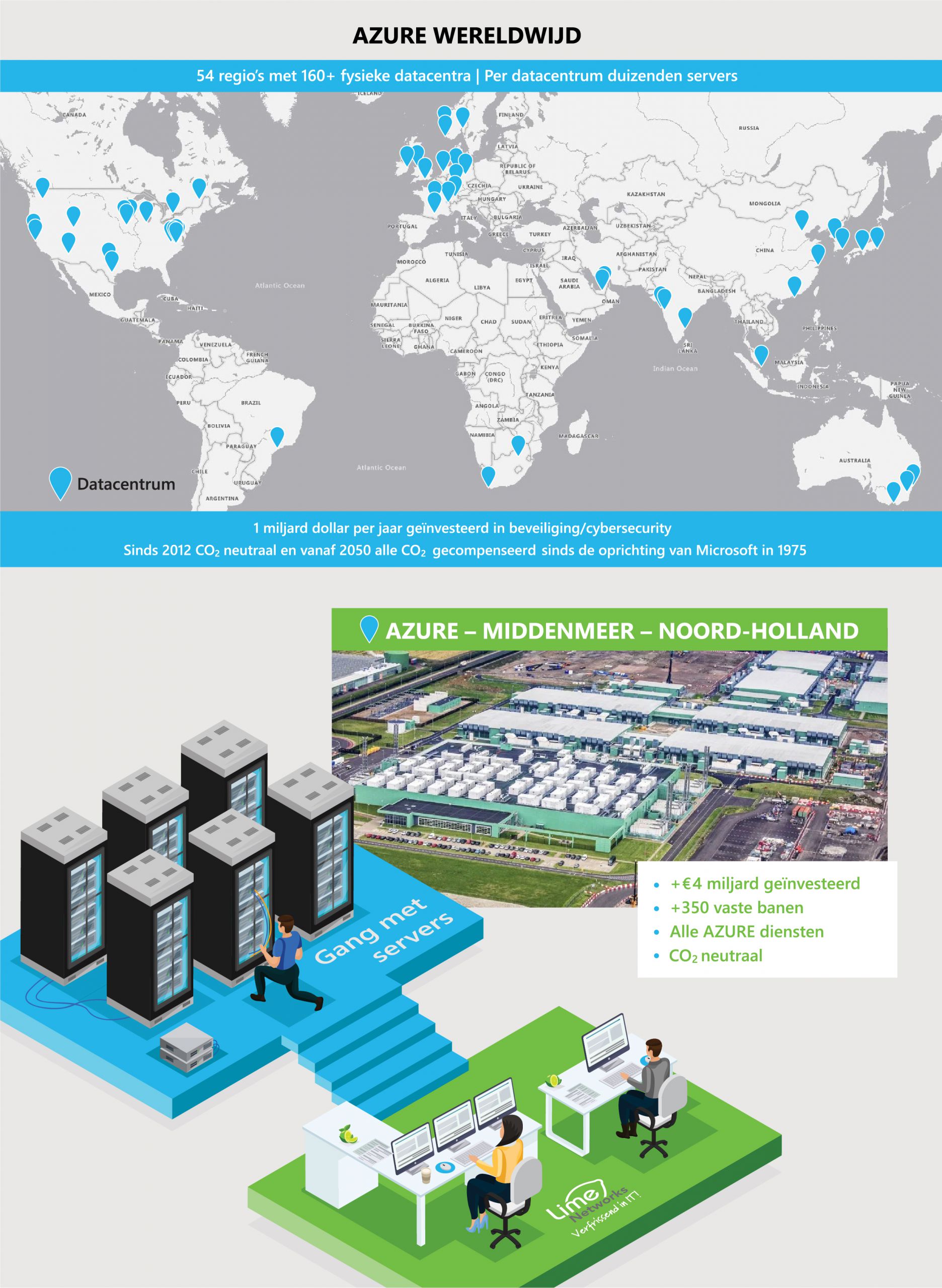
What do we do about server management?
We make IT simple and clear
We manage your server ourselvesijust like just like with laptops or other devices. You come to us and we take care of it. Did you buy the equipment from us, then we handle the guarantee. We schedule additional work promptly, such as the installation or the restoration of data or erasing hard disks.
For Servers, we also diagnose the problem for you (within our maintenance contract) and ensure the most efficient handling. Have you thought of everything and are you doing well, but do you encounter problems?? DTHEN WE help you with priority. For example, we will provide you with a temporarye a laptop or an alternative solution.
With our 3-2-1 back- –up strategy, you will be up and running again as soon as possible in the event of a server failure.
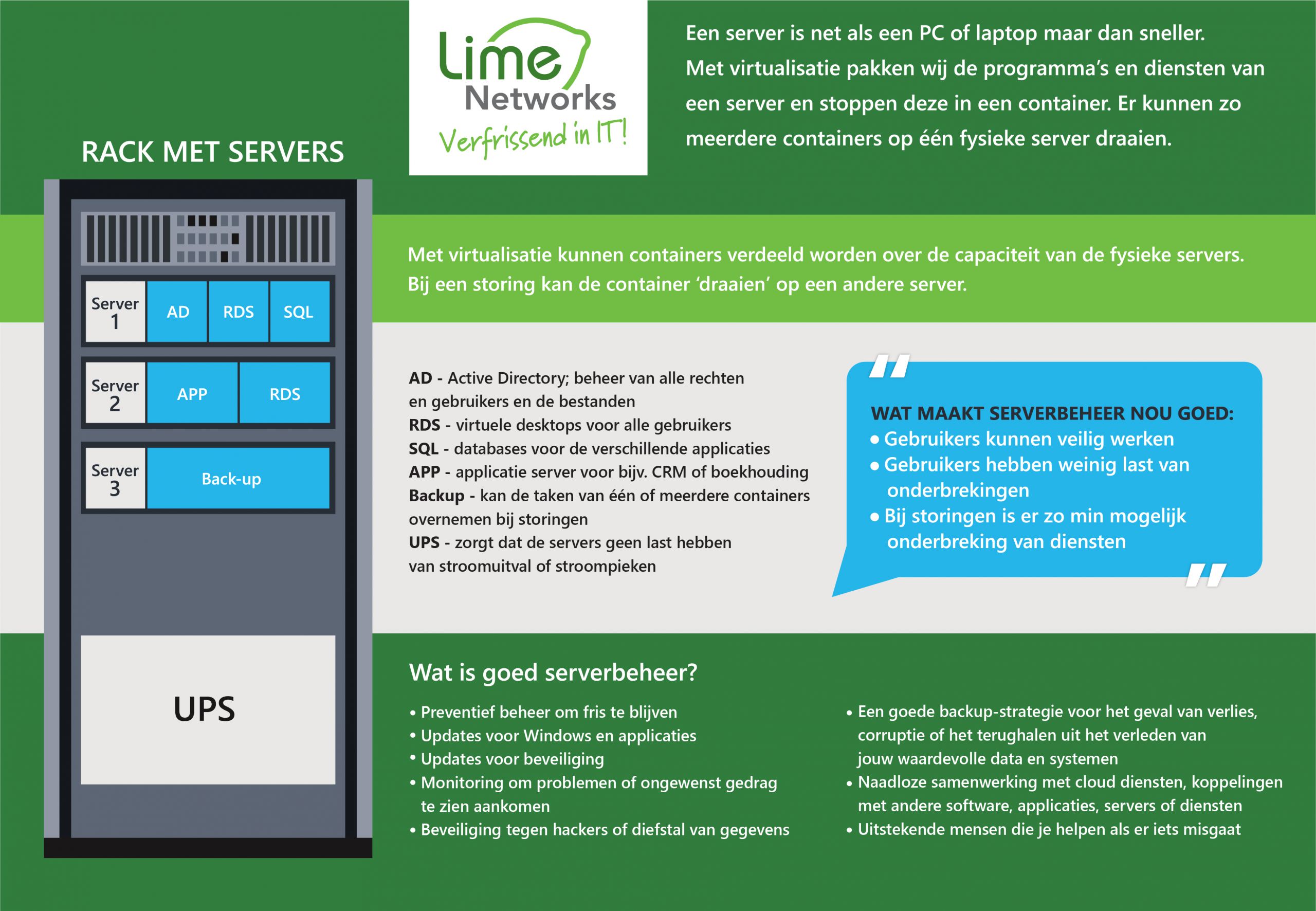
Frequently asked questions about Servers and Azure
Azure is the umbrella name for Microsoft's cloud platform. Microsoft's Office 365 services use Microsoft's data centres and cloud. So they work together.
In the field of Windows-only services and servers, I think we can safely say: Yes! For other services that are generic, it is a different story. Microsoft is one of the market leaders. The diversity, reliability and security are together truly unique and unrivalled. Other cloud platforms undoubtedly have their own areas in which they excel. With Microsoft Azure you are safe in terms of pricing, performance, security and continuity for the future. That is why our preference and expertise lies with Microsoft Azure.
That your servers perform optimally and safely. Server management includes all activities to keep your server up-to-date with functional and security updates. We also monitor the server so that abnormal behaviour quickly becomes visible and can be remedied. In addition, with automation and scripting, we also ensure the security of your server and resolve many failures with an automatically generated solution. Very efficient. Control of back-ups and automatic control of the incidental restoring of data from a back-up or even an entire server.
That differs per company. If you are using Office 365 and Teams, you will continue to work with your files. Functions such as working live on the same document are temporarily on hold, but you can continue to work as usual. Are you more dependent on internet access, for example because of cloud services such as applications, databases or WVD? Then it is wise to prepare for this with a redundant internet connection (a back-up connection that takes over if your main connection fails). Certainly at your office location, this is no superfluous luxury. Of course, we can help you with this, so that you can continue working in the event of a failure.
There are even several advantages! We wrote a blog about it: what is (good) server management and why is it important?
We have written a blog about this: how to go to the cloud?
When we think of a server, we think of a piece of hardware with software on it that 'serves' one or more services on the network. With a virtual server, the software is packed into a single file. We call this a 'container'. Several containters can also be active at the same time on one physical server. They behave as real individual servers. These containers/virtual servers are easy to move to other physical hardware.
Well, opinions sometimes differ on that. The technology and the security are of course well taken care of in Azure. Much better than in the office. Still, you need to maintain your servers well, even if they are in Azure with good server management(read our blog about this). We are talking about virtual servers. Especially if you provide virtual server services that are connected to the internet or provide your staff with services. Azure also excels in physical security and emergency scenarios. Think for example of theft, fire, disasters, sabotage, and so on. This much higher level of security is why we are fans of Azure.
The cloud is certainly safe. In the case of Azure, Microsoft tries to comply with as many guidelines as possible such as ISO and NEN. Your specific services must also be secured, of course. If your virtual servers or services are connected to the internet so that others can see them or if staff can directly access the services, then you must secure them against unauthorised use. This is often easier than having them in the office, but it has to be done.
Yes it certainly is. It's mostly in experience and knowledge building. That's the difference between just doing it and doing it right. With 'automation' and 'monitoring' you can achieve a lot of efficiency in performance and continuity. We at Lime Networks go to great lengths to ensure that your company performs optimally. Security is perhaps the most important aspect. Without experience and knowledge, unsafe situations arise that you cannot see for yourself. Therein lies our strength. Server maintenance is not a lot of work, because we have the right tools for the job. This also prevents individual mistakes.
Actually, all types of servers, if we limit ourselves to the hardware. If we talk about the software, we supply Windows-Only. You can think of ActiveDirectory, Storage, SQL, RDS/WVD, RemoteApp and application servers. In Azure, some servers are broken down more into functions or roles in order to achieve efficiency. We are happy to tell you how to maintain or set up your server park in the cloud in a modern way, without too much inconvenience.
It's the other way around: why NOT go to the cloud? Cloud first, unless...' is the most modern strategy for your IT these days. The reason why you should do this varies from company to company. Think for example of security, performance, continuity, volatility, cost control, from OPEX to CAPEX, less uncertainties, focus on the core strategy of your company... These were some of the important motivations, but there are more. Do you want to know what your personal motivation is? Let us know and we will gladly think along with you.
- Easily replace the hardware under the container
- Moving the container if the hardware breaks down
- Placing multiple containers on one physical server
- Keep the physical server on standby.
If a physical server breaks down, you can quickly deploy one or more virtual servers by moving them to it.
... And much more. Virtualisation/virtual servers are an evolution in IT. The cloud also benefits enormously from this. Would you like to know more about it? Give us a call.
Of course, you can continue to work locally. However, in the cloud you can protect personal data just as well as on a local server. Especially when it comes to security and availability, the cloud can offer a solution. Don't let the AVG be an obstacle to the cloud, but rather a strength with which you can achieve more than before. Take security to the outside world or theft, for example. The cloud can do that much better.
Yes, the technology is ready. We often hear from customers that there are some doubts, e.g. about logistics, how modern the company is or about specific wishes and requirements. We will be happy to explain that there are already solutions to this problem. Call us for an intake and explanation of a ready-made solution. Cost savings, efficiency and security often go hand in hand with a modern cloud solution.
Yes and no. Services and servers in the cloud have an SLA (Service Level Agreement). Services are the responsibility of the supplier. If we put a customer's server in the cloud, maintenance is almost as important as putting a server in the office. There are many advantages to the cloud (higher uptime, quickly adding capacity, a high degree of redundancy, delivering performance even when hardware fails, etc.) but the maintenance of your server remains a customer affair. Of course, we take care of that! We also advise you well, so that you can optimise your costs and get the most out of the cloud without paying too much.
We ensure that the servers are secure and up-to-date with special software (DATTORMM) and a team of professionals. They deploy smart scripting, automation and a standardized update process. Also, common problems are solved automatically. Should things still go wrong somewhere, notifications are made automatically and we address them promptly.
At first glance, this appears to be the case. The cost is often a combination of computing power, memory, storage, redundancy, availability, licences, and so on. It is complex to see, but you can often be much more efficient and by definition better prepared for fluctuations (volatility) and redundancy.
In Azure, your data, servers and data are by default located in data centres in the Netherlands. You can also specify whether you want to distribute your services to the rest of the world or to a specific location. Sometimes you want to be 'georedundant', i.e. operate in more than one geographical location at the same time. Perhaps you want the Hong Kong office to have a higher performance and you want to have servers or services in that specific region. You can indicate this.
Most servers are perfectly suited to the cloud. There are also usually advantages over a server in the office. We often hear limitations or doubts from customers when this is not necessary. We are happy to look at your specific solution and present you with a ready-made solution.
Unfortunately, this is not the case. Azure is a set of services on the Internet. The moment you are offline you are not physically connected. With Office 365, for example, you can continue working with data offline if you use OneDrive. Technically, Office 365 is a cloud service that uses Microsoft's cloud.
With Azure, you almost always pay for using a service. The cost is for direct consumption. Take a server, there you pay per unit of time (minutes). Or for example storage, there you pay per GigaByte. This includes licenses for Windows server, for example, or access licenses for using the service. If you need more, you pay a little more; if you need less, you actually pay less. For example, you can turn off a server on weekends if you don't need it. Super convenient! The costs are also always a result of a case study or an investigation at a customer's site. We are pretty good at calculating costs but it is specific per client/solution. Prices for all services can be found on Azure's website and publicly. Also, you can make a calculation there and adjust live so the understanding of costs is very clear. Purchasing products on a longer term basis allows for more discounts.
Azure is Microsoft's suite of cloud services. This is about renting servers, databases, storage, AI, IOT and hundreds of different things to move your IT services to the cloud in the background. We help you with choices, advice, cost control, migration to it and the management and advice once it's up and running.
A server is a type of computer that 'serves' services. Think of e-mail or files or a database that is available to users, other servers or programs. A well-known one is e-mail. Your Outlook connects to it to retrieve your e-mail (synchronisation) and also, at the same time, for your colleagues, your calendar and, for example, your telephone, which is also synchronised.
A horse is an animal, but an animal is not a horse. Azure, for example, is a wide range of cloud services. But there are also other players in the market such as Google, Amazon, IBM, etc.
On the Azure platform, the possibilities are almost endless. From storage, computing power, (virtual) servers, AI, SQL, IOT and much more. We would be happy to explain what this means in a personal meeting.
